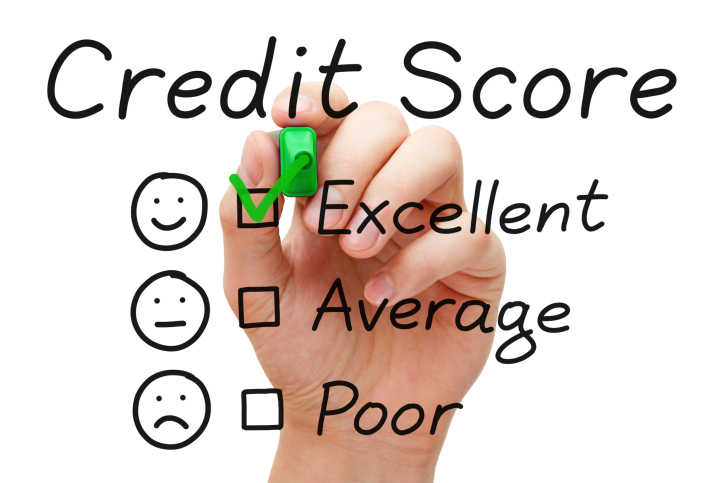 Credit problems are unfortunately common, and they can make it difficult for you to obtain a mortgage. Even if you are able to obtain a mortgage with your credit issues, the rate may be rather high in comparison to what you may qualify for if you obtain a mortgage without fixing your credit problems. While some issues may take a while to fix, you may be able to see a decent increase in your credit rating when you follow a few easy steps.
Credit problems are unfortunately common, and they can make it difficult for you to obtain a mortgage. Even if you are able to obtain a mortgage with your credit issues, the rate may be rather high in comparison to what you may qualify for if you obtain a mortgage without fixing your credit problems. While some issues may take a while to fix, you may be able to see a decent increase in your credit rating when you follow a few easy steps.
Pay Off Outstanding Derogatory Credit Items
When you review a copy of your credit report, you may notice that some items have an outstanding balance due. If the account is in good standing, the outstanding balance is not a primary issue unless you have an excessive amount of debt. If the account is not in good standing, such as if you have a series of late payments or a collection account being reported on the credit report, you can see a boost in your credit rating when you pay off these debts.
Settle Judgments
Legal matters can also be reported on your credit report, and they may be settled or still outstanding. An example of this would be if an electrician serviced your home, and you did not pay the bill. The electrician could file a lien against you. A settled judgment may still be a ding on your credit rating, but it is far better than having an unsettled judgment. If you notice that you have a judgment reported on your credit report, you may consider taking the necessary steps to settle it and get back in good standing.
Pay Off Small Balances
If you can afford to do so, it can improve your credit rating to pay off small balances. A portion of your credit rating will be determined by the number of open accounts and the number of accounts with balances that you have. By focusing on the small balances, you can often see a quick improvement in your credit score. There may also be a benefit to closing these accounts after they have been paid off.
Before you apply for a mortgage, it is wise to request a copy of your credit report. You want to remove any items that you find on the report that do not belong to you. For those derogatory items that are yours, you can follow these steps to help improve your credit rating with fast results.

 If you are self-employed, either as a freelancer or as the owner of your own business, your income can fluctuate greatly from year to year. That can make it difficult to get approved for a mortgage, although there are some things you can do to improve your chances. Here are three tips for securing a mortgage if you are self-employed.
If you are self-employed, either as a freelancer or as the owner of your own business, your income can fluctuate greatly from year to year. That can make it difficult to get approved for a mortgage, although there are some things you can do to improve your chances. Here are three tips for securing a mortgage if you are self-employed. There are several factors that are reviewed when you apply for a home mortgage, and one of the initial factors is your credit rating. You may already be aware that you have a lower credit score, or you may have learned about your credit issues after speaking with a mortgage professional. Now that you are aware of the situation, you may be concerned about your ability to get approved for your loan request. The good news is that you may still be able to get a mortgage without a favorable credit history with a few things.
There are several factors that are reviewed when you apply for a home mortgage, and one of the initial factors is your credit rating. You may already be aware that you have a lower credit score, or you may have learned about your credit issues after speaking with a mortgage professional. Now that you are aware of the situation, you may be concerned about your ability to get approved for your loan request. The good news is that you may still be able to get a mortgage without a favorable credit history with a few things. One of the most significant factors a mortgage lender will review when you apply for a new mortgage loan is your credit history and rating. While some people have stellar credit, others have a troubled credit history with lower scores.
One of the most significant factors a mortgage lender will review when you apply for a new mortgage loan is your credit history and rating. While some people have stellar credit, others have a troubled credit history with lower scores. The unfortunate reality is that many individuals have a lower credit rating than they would like. For many, this is caused by issues related to high debt balances, late payments and other related issues. If you have a lower credit rating, you may be wondering what steps you can take to improve your standing with the credit bureaus. While there are several steps available for you to consider, making timely payments on your home mortgage can have a great impact on your credit. There are four unique ways that diligence with your mortgage payment may improve your credit.
The unfortunate reality is that many individuals have a lower credit rating than they would like. For many, this is caused by issues related to high debt balances, late payments and other related issues. If you have a lower credit rating, you may be wondering what steps you can take to improve your standing with the credit bureaus. While there are several steps available for you to consider, making timely payments on your home mortgage can have a great impact on your credit. There are four unique ways that diligence with your mortgage payment may improve your credit.